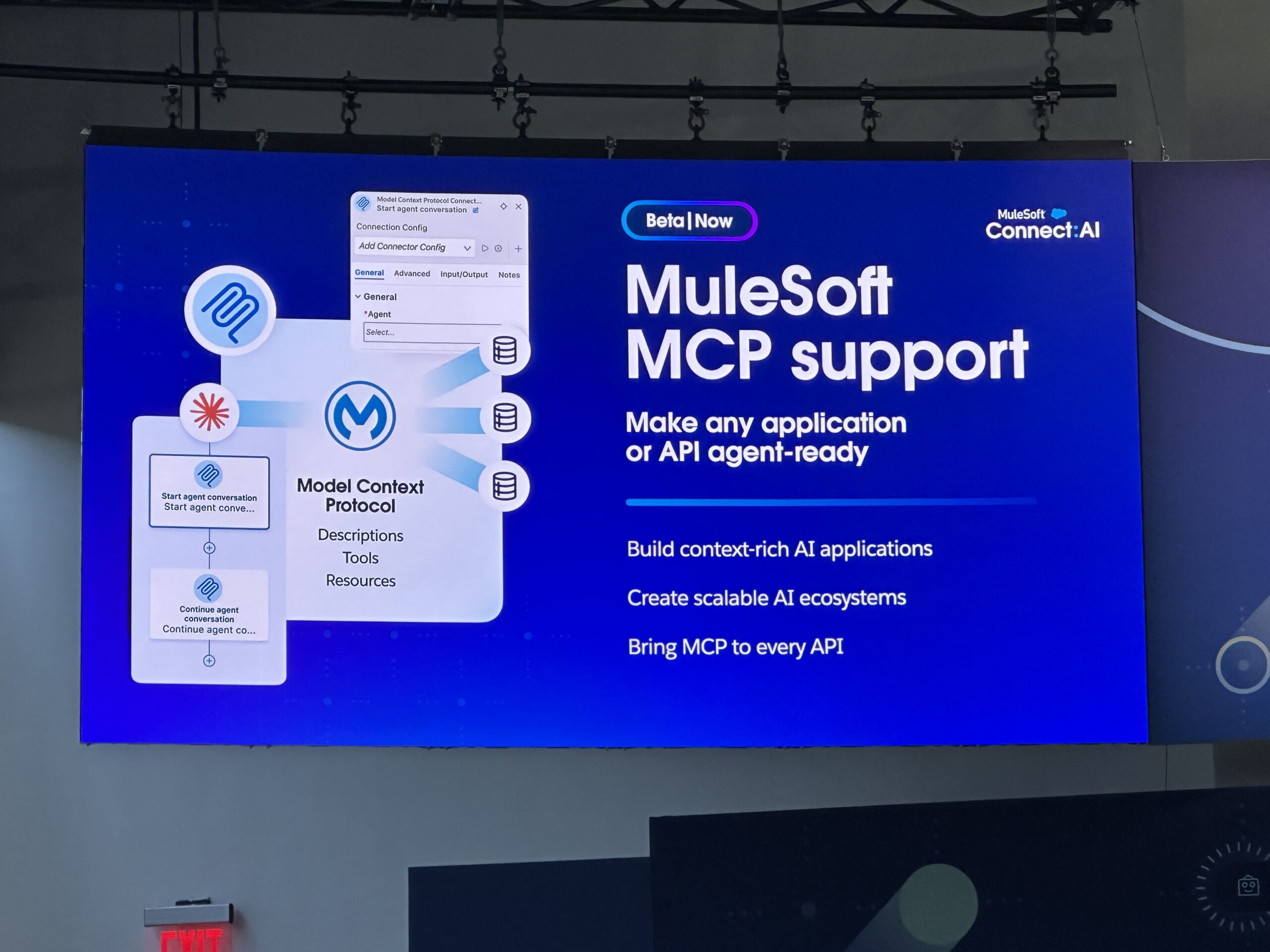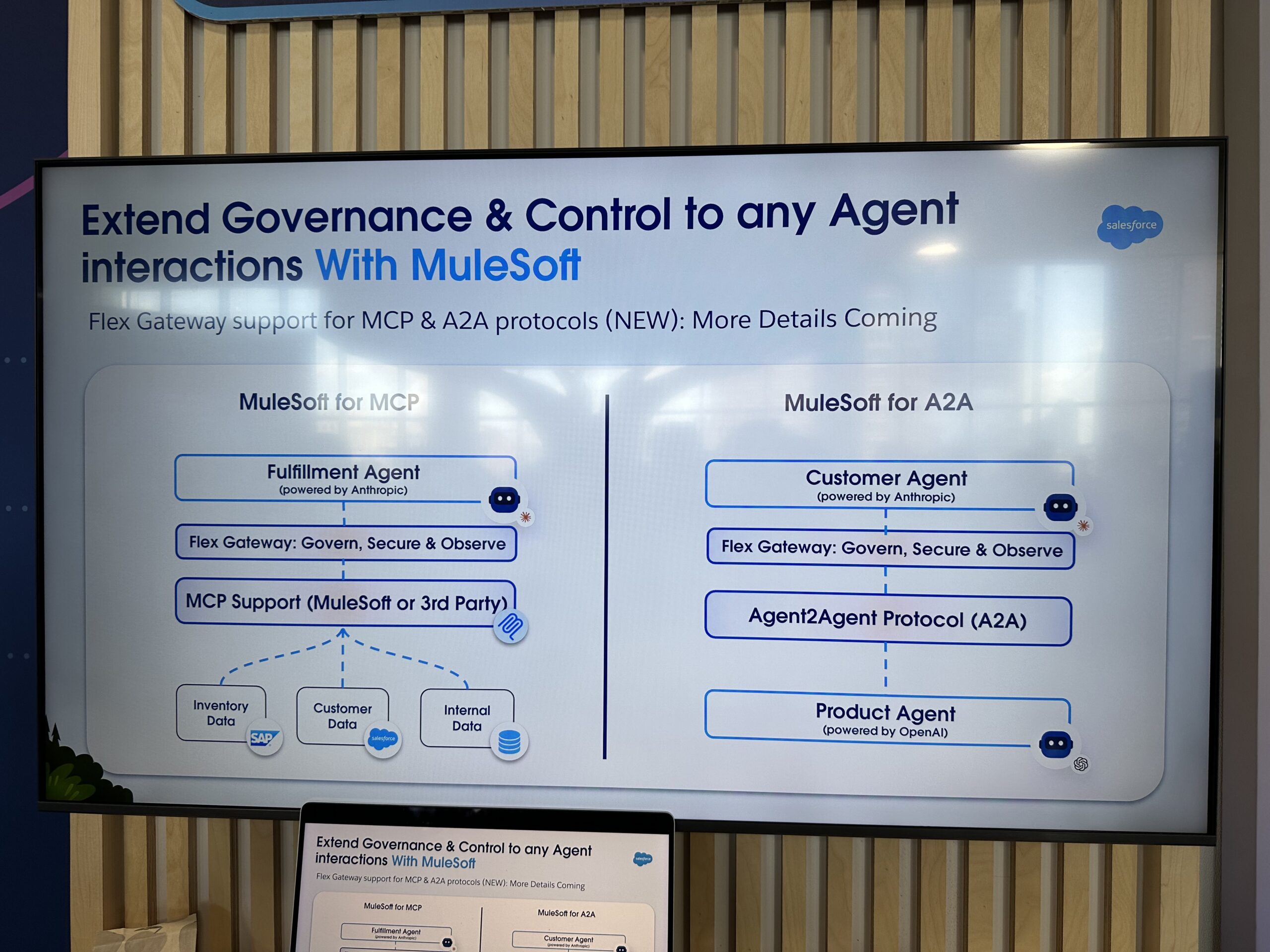Salesforce aims to control data flow as companies move toward agent-driven enterprise software

MuleSoft, a Salesforce subsidiary, is rolling out new agent interface standards (MCP and A2A) aimed at bringing autonomous AI agents into enterprise IT.
Salesforce sees AI agents as the next step in office software, where humans spend less time clicking and more work happens automatically across different systems. In June, the company released the third version of Agentforce, a toolkit for building these kinds of agents inside the Salesforce ecosystem. The latest release adds a central control center and support for two new agent protocols: Model Context Protocol (MCP) and Agent2Agent (A2A).
The technical backbone for running AI agents is MuleSoft, an integration platform-as-a-service company that Salesforce acquired in 2018. MuleSoft originally made it easier for companies to connect scattered data sources through APIs, from CRM tools to legacy on-premises systems. Now, the company wants to do the same for AI agents.
Autonomy with oversight
The new protocols are designed to give agents both autonomy and oversight. MCP, developed by Anthropic, translates agent requests into system commands - for example, querying a database or restarting a server. The A2A protocol, which started at Google and is now a Linux Foundation project, lets agents assign tasks to each other. MCP enables agents to interact with systems, while A2A manages how agents work together. For instance, a customer agent from Anthropic can communicate with a product agent from OpenAI, without developers having to agree on a custom protocol. Of course, this only works if agents know what they are allowed to do - and what they are not.
MuleSoft's Flex Gateway acts as a central control point. It decides which agents can access which data, what actions are allowed, and when an interaction should end. According to Salesforce, this setup lets companies turn existing APIs into agent-ready endpoints, without rebuilding their infrastructure.

A typical use case might look like this: a monitoring agent detects a critical error and alerts a diagnostics agent. That agent checks a knowledge base, then instructs a repair agent to restart the affected system. Finally, a fourth agent reports the successful fix in Slack.
Still more concept than product
Salesforce doesn't plan to build the best agent itself, but instead wants to provide the "operating system" for agent-driven workflows. The approach is similar to early cloud providers, who sold not just storage space but the tools to use it. Whoever controls the interfaces controls the data flow - and the market.
Still, agent technology is more concept than product right now. Unlike classic software, agents interpret, learn, and react based on context. That makes them flexible but also unpredictable, so most projects are still experimental. AstraZeneca is testing agent-driven processes for research and sales, and Cisco Meraki is using MuleSoft's "AI Chain" to connect its own language model with automated workflows for partner portals. But most efforts are still in beta.
According to MuleSoft COO Ahyoung An, many customers are interested but hesitant. The technology is new and the risks hard to gauge. Early bug reports confirm the challenges: agents that get stuck in endless loops or processes that never finish. MuleSoft is responding with training, entry-level pricing for smaller businesses, and a growing set of security policies. The two new protocols are scheduled for general release in July.
AI News Without the Hype – Curated by Humans
As a THE DECODER subscriber, you get ad-free reading, our weekly AI newsletter, the exclusive "AI Radar" Frontier Report 6× per year, access to comments, and our complete archive.
Subscribe nowAI news without the hype
Curated by humans.
- Over 20 percent launch discount.
- Read without distractions – no Google ads.
- Access to comments and community discussions.
- Weekly AI newsletter.
- 6 times a year: “AI Radar” – deep dives on key AI topics.
- Up to 25 % off on KI Pro online events.
- Access to our full ten-year archive.
- Get the latest AI news from The Decoder.